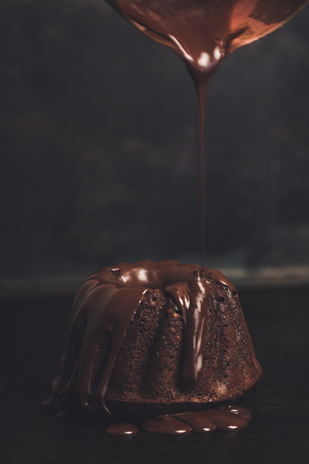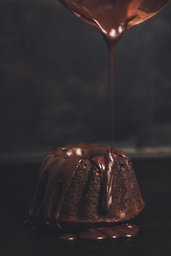4,000 years ago, in Mesoamerica, you have the honour of preparing the liquor this time. You carefully grind every bit of the cacao seeds, scraping them into the bubbling pot. Stir once, twice, and inhale the bitter aroma wafting gently above the concoction. It is ready, and soon every drop will be savoured by your people, the Olmec. This is the true elixir of life — the gods will be very pleased with this.
Not long after that, wandering the Mayan marketplace, you keep a guarded hand on your pouch of cacao beans. Enough to trade for a good turkey, probably. Or perhaps you should take them back home and make that exquisite drink, xocoatl. Blessed with divine power, you know the drink will keep you in good health for many days to come.
A little later in history, it is good to live rich in Spain these days, when you and your friends can enjoy Hernando Cortes’ latest bounty from the Americas. You toast him, wishing him more success, and sip the sweetened chocolate from the goblet. Instantly, the smooth, mellow flavours brighten your mood, the delicate sweetness of the honey masking the bitter undertones of the cocoa. This liquor, this drug, this aphrodisiac, may just be the best thing you’ve ever tasted.
Many decades pass and you smile, as the pressers and roasters work behind you, busy converting cacao pods to pure cocoa, pure magic. No longer will chocolate be the sole property of the wealthy and fortunate. The time has now come, when everyone in the world can enjoy the fruit of the ‘Theobroma cacao’— for it truly is ‘the food of the gods.’
Just yesterday, you tiptoed, eyes fixed on your precious quarry just out of reach. A few more steps and you had it! The last pack of chocolate was stuffed into your pocket as you ran, your sister alerted by the crinkle of foil packaging. It was enjoyed later, the precious squares of Dairy Milk chocolate melting in your mouth and hands as you stuffed yourself full.
When chocolate is so deeply ingrained in our history, how can we help but love it? In cakes, cookies, and hot chocolate drinks, in cold coffees and ice-creams and Halloween treats, chocolate is all around us, singing its siren call of sweetness and bliss, enjoyed by one and all. This special dessert has a history stretching back to the Olmec, Mayan and Aztec civilizations, where cacao was greatly valued, and although chocolate is most often enjoyed as sweet, solid bars today, it began as a drink, and unsweetened liquor prized for its bitter flavor, supposed to have medicinal and religious properties.
Chocolate comes in many glorious forms, from the simplest Snickers we grab off the shelf, to the most luxurious Lindt from foreign shores. It seems to defy all logic, for every form tastes equally delicious. Ultimately, all chocolate can be reduced to the same basic ingredients — cocoa solids, cocoa butter, and sugar. So, how does something so fundamentally simple cast such a powerful spell on so many of us?
Many believe the effects of chocolate are due to the chemicals that cocoa contains, and their interaction with neurotransmitters. Chocolate is naturally rich in theobromine, a compound that has effects similar to caffeine, giving us a slight boost and stimulating our brains. However, most of the energy increase simply comes from the sugar content, rather than the cocoa itself.
Other chemicals people frequently point to are phenylethylamine or ‘chocolate amphetamine,’ and tryptophan. The former is considered an aphrodisiac (hence the tradition of giving chocolates to your love on Valentine’s Day), and the latter helps in the production of serotonin, one of our brains’ ‘happy chemicals.’ While this would appear to explain the effects chocolate has on us, in reality, these chemicals never actually reach our brain or have a substantial effect on our energy or mood.
So, what then is the cause of our love for this childhood confection? Perhaps it is just that — our childhood. More specifically, our childhood memories, because chocolate is personal — deeply personal. When I taste that rich sweetness, I remember the times my father brought back new chocolate treats from his trips abroad. Behind the pleasant bitterness of dark chocolate is the memory of me and my sister sharing a bar as we read books, the memory of slowly growing accustomed to the bitter taste because she loved it so much, and eventually coming to love it myself. Just past the sticky, syrupy caramel filling are distant memories from my childhood, when things were at their simplest, and the flash of a chocolate wrapper was enough to put the biggest smile on my face.
So, go have a bit of chocolate, have a sip of the drink of the Gods. Don’t forget — chocolate is old and powerful. It may just have some mysteries left.


